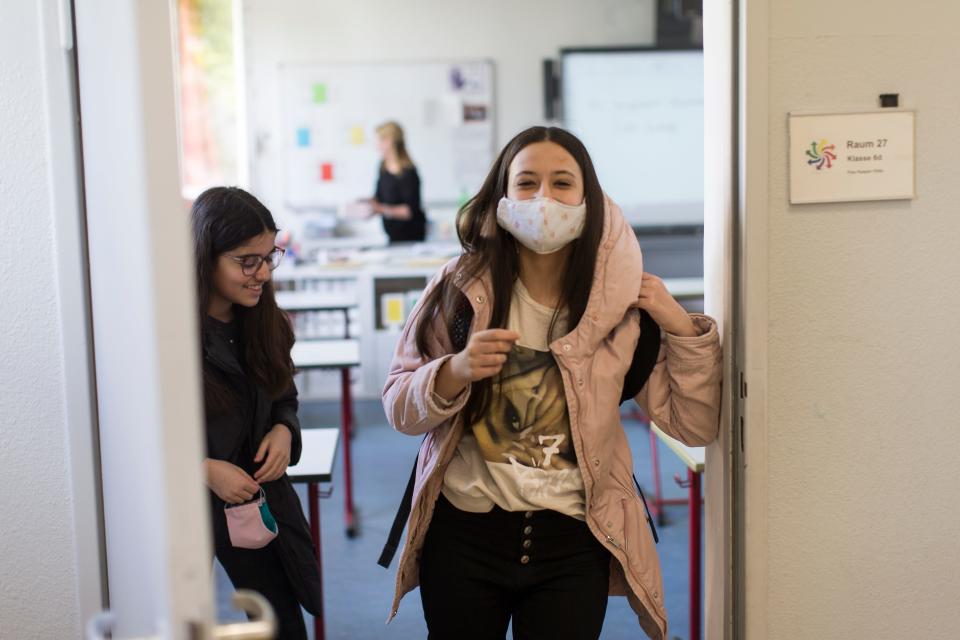Fauci says there are 2 reasons we should reopen schools

izusek/Getty Images
Dr. Fauci said "we should try as best as we possibly can" to reopen schools for both the psychological and physical welfare of children and to avoid the effects closures will have on families.
But there's a big "however," he said. "We must not compromise the health, the safety, and the welfare of the children, of the teachers, and secondarily of their parents."
Like top health and education organizations, he said that means safe school reopenings will look different in different parts of the country, depending in part on rates of transmission.
In step with President Trump's push, Dr. Anthony Fauci said Monday that "as a default point, we should try as best as we possibly can to get the children back to school."
Out of stride with the commander in chief, however, Fauci emphasized what he said was "a big however."
The nation's leading infectious-disease expert's comments, aired during a livestream hosted by US News & World Report, echo the position held by top education and health professionals: Opening schools is a priority, but only if it's safe.
Schools should open to support kids' welfare and their families' livelihoods
There are two main reasons why opening schools is critical, Fauci said.
First, school reopenings are important for "the psychological welfare of the children, the fact that many children rely on schools for nutrition, for breakfast, for healthy lunches," he said.
Children's developmental specialists say young children may be at a heightened risk for developing mental health issues when isolated from friends and teachers.

Sixth graders wear protective face masks at an elementary school in Berlin, Germany, on May 5, 2020.
Christian Ender/Getty Images
Second, returning to in-person classes should be a national priority in order to avoid "the unintended downstream ripple effects on families," he said, like parents needing to interrupt or stop work in order to take care of and homeschool their children.
That "creates a big issue," he said.
"The 'however,'" Fauci said, "is we must not compromise the health, the safety, and the welfare of the children, of the teachers and secondarily of their parents, who they may spread it to."
School reopenings are not 'one size fits all'
Reopening schools safely will look different in different parts of the country, Fauci said. "We must be flexible and open-minded, and one size does not fit all."
In counties and cities with very low infection rates, for example, it may be possible to "go back to school with impunity and not worry about things," he said.
In places with moderate infection rates, however, a modified approach — like bringing kids in only some days or parts of the day and implementing mask-wearing and physical distancing — may be safest.
"And then there are other areas of the country where the infection prevalence and rate of new infection is so high that you really have to say, 'it is not a good idea to bring the kids back to school,'" Fauci said. "You've just got to be flexible depending upon the level of infection where you're located."
Fauci's stance aligns with other top education and health organizations
The American Academy of Pediatrics, American Federation of Teachers, National Education Association, and The School Superintendents Association released a joint statement July 10 saying "returning to school is important for the healthy development and well-being of children, but we must pursue re-opening in a way that is safe for all students, teachers and staff."
They added that health experts should dictate when is best to reopen in-person learning, and that openings should take into account transmission rates in the community.
Like Fauci, the statement said, "a one-size-fits-all approach is not appropriate for return to school decisions."
Read the original article on Business Insider

 money
money 